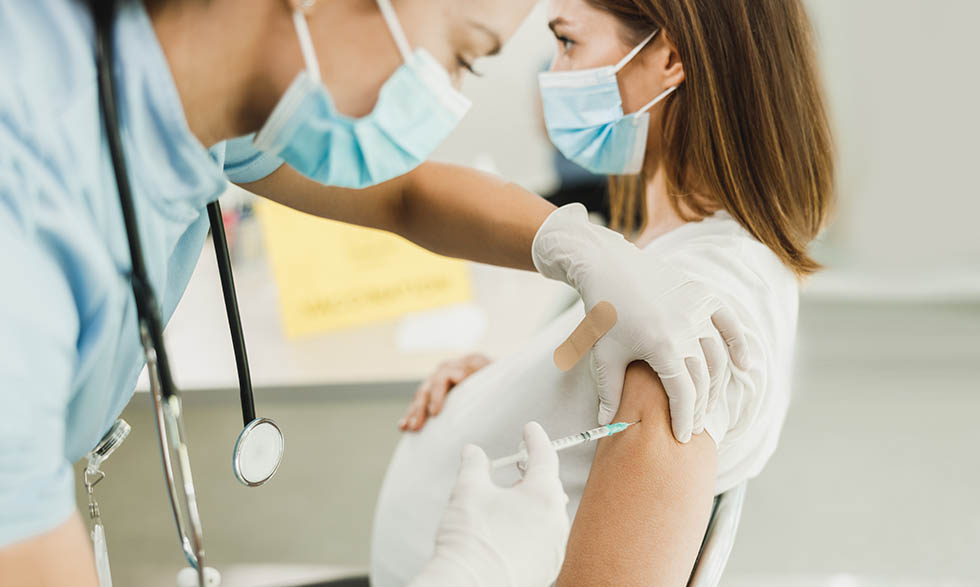
Last updated on July 22nd, 2024 at 11:37 am

Andrea Edlow, M.D.
Andrea Edlow, M.D., is a maternal-fetal medicine specialist at Massachusetts General Hospital. When COVID-19 hit, her lab began researching the immune response in vaccinated pregnant and lactating individuals. She shares the results of this study, which is supported by the National Institute of Child Health and Human Development, and provides a peek into more COVID-19 research to come.
What was the reason for studying immune responses to the Pfizer and Moderna vaccines in pregnant people?
Prior to the last decade, there was a more simplistic understanding of pregnancy immunity. It was assumed that pregnant people were in an immune-suppressed state so they would not reject the fetus.
But pregnancy is not a static immune state—it’s in flux. Pregnant people may respond to vaccines differently at different points in pregnancy. There might also be reason to think that pregnant individuals could respond to vaccines differently than nonpregnant people because the general immune state of pregnancy is unique.
The same is true with lactation, or breastfeeding. During the postpartum period, pregnant people return to a more nonpregnant immune state. This timeframe isn’t well-studied. So, the questions we wanted to ask were, “Do pregnant and lactating individuals respond to the vaccine the same as nonpregnant people of the same ages?” and “Are lactating individuals’ responses different from those of pregnant individuals?”
How did you study this?
We measured this by looking at the antibody response of pregnant individuals compared to nonpregnant individuals. We measured antibody levels before vaccination, after the first dose of the vaccine, and then about four weeks after the second dose of the vaccine.
What did the research find?
Unfortunately, we found that pregnant and lactating people are relatively less protected after the first dose of the vaccines compared to nonpregnant people. After the second dose, both groups were relatively at the same spot. This was an interesting finding because it suggests that it’s really important for pregnant and lactating people to adhere to the dosing schedule of the vaccine.
We also found that vaccinated lactating people made amazing levels of antibodies that were significantly higher than both nonpregnant and pregnant people. This shows that lactation is indeed a mysterious immune time that we don’t know very much about.
Why are these findings important?
These findings are especially important today with the Delta variant strain of the COVID-19 virus. We now know that pregnant and lactating people who are half vaccinated are hardly protected against it, so it’s extremely important for them to be cautious until they are fully vaccinated.
What other research is on the horizon?
Research has found that a side benefit of being vaccinated during pregnancy is that some of the antibodies the mother makes cross the placenta and protect the infant for a period of time. Right now, we’re investigating exactly how long that protection might last. We’re also looking into whether the antibodies that the mother makes can be passed to the infant via breast milk.
As of August 2021, the Centers for Disease Control and Prevention (CDC) strongly recommends that all pregnant people get vaccinated against COVID-19. Visit cdc.gov for the latest information on COVID-19.
